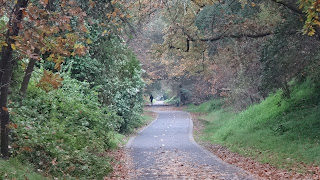The UK continues to surprise and disappoint with its shambolic approach to controlling the COVID-19 pandemic.
 |
| Looking towards Avoca this morning |
 |
| Wamberal lagoon bar this morning |
Firstly, they toyed with the concept of "herd immunity" for a week or so back in March before realising how many deaths could actually result. Then, after switching tack, they were slow to shut down because they were worried about restriction fatigue. Even then, the restrictions imposed tended to be advisory, with devastating results in their nursing homes. The seriousness of the restrictions were further undermined when two of the leading architects were caught blatantly breaching them.
 |
| Looking towards Wamberal lagoon bar this morning |
Now, the UK is imposing a mandatory blanket two-week quarantine restriction on inbound passengers, just as other European countries are easing their own travel restrictions. Most of those countries now have lower infection rates than the UK and are reopening their economies as the summer vacation season is getting underway. It seems nonsensical. The UK's budget travel airlines are trying to resume operations and now find that both inbound tourists, and returning resident vacationers, will have to spend two weeks in quarantine. It's hard to believe this policy will be sustained.
 |
| Surf breaking at The Haven this morning |
The UK has mishandled the health crisis and now looks likely to sabotage its economic recovery as well.
The UK's stumbles mirror my own fitness management during the pandemic. I have switched between plans and then crippled my own recovery after my three week "shut down" by risking a golf game. I
walked 4km with Julie this morning as she recovered from her 100km run yesterday. I could feel some pain whenever I lengthened my stride, so can't risk running until that diminishes. I'll adhere to my exercise plan of increasing distances by one kilometre every two days, but it will be walking not running.






















